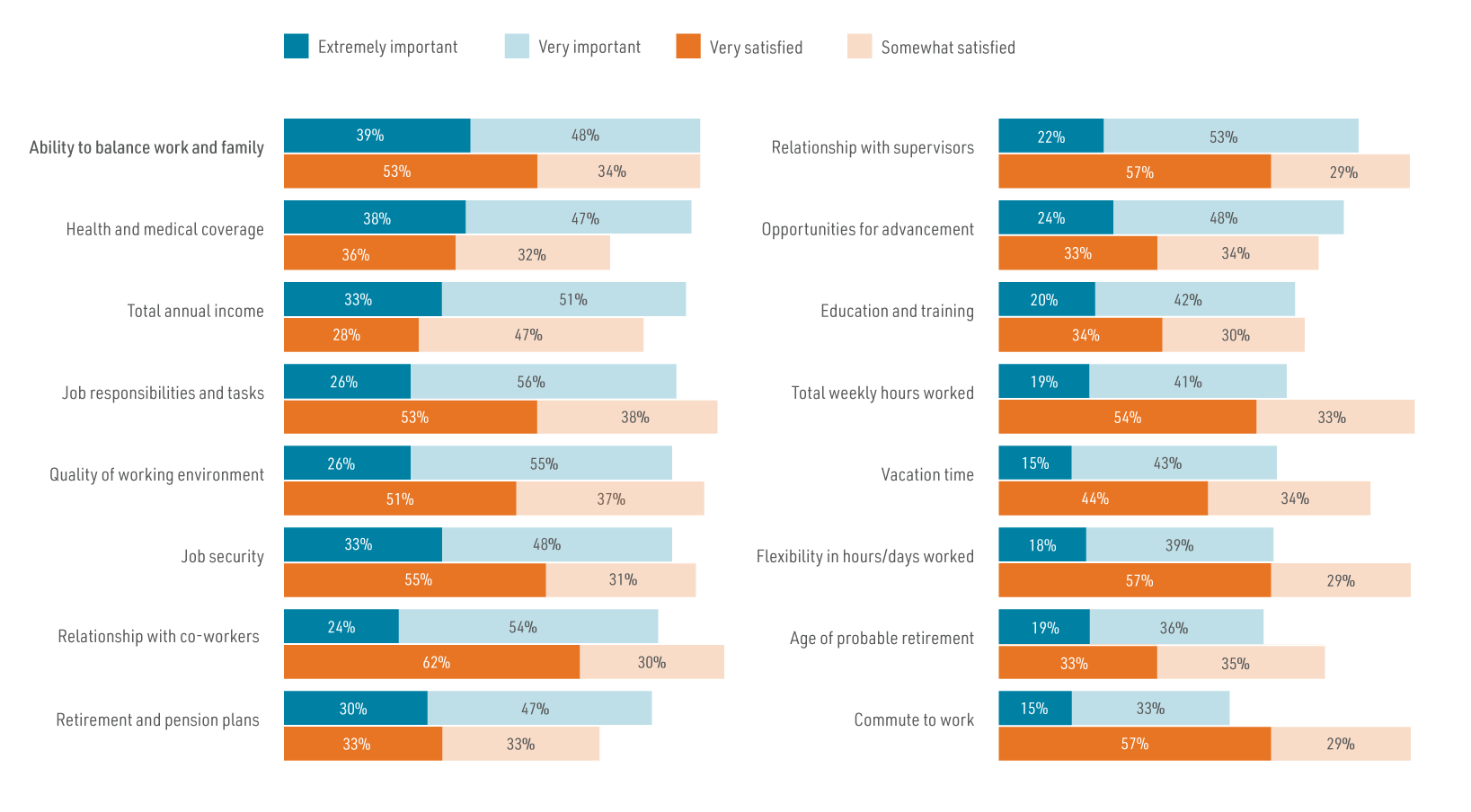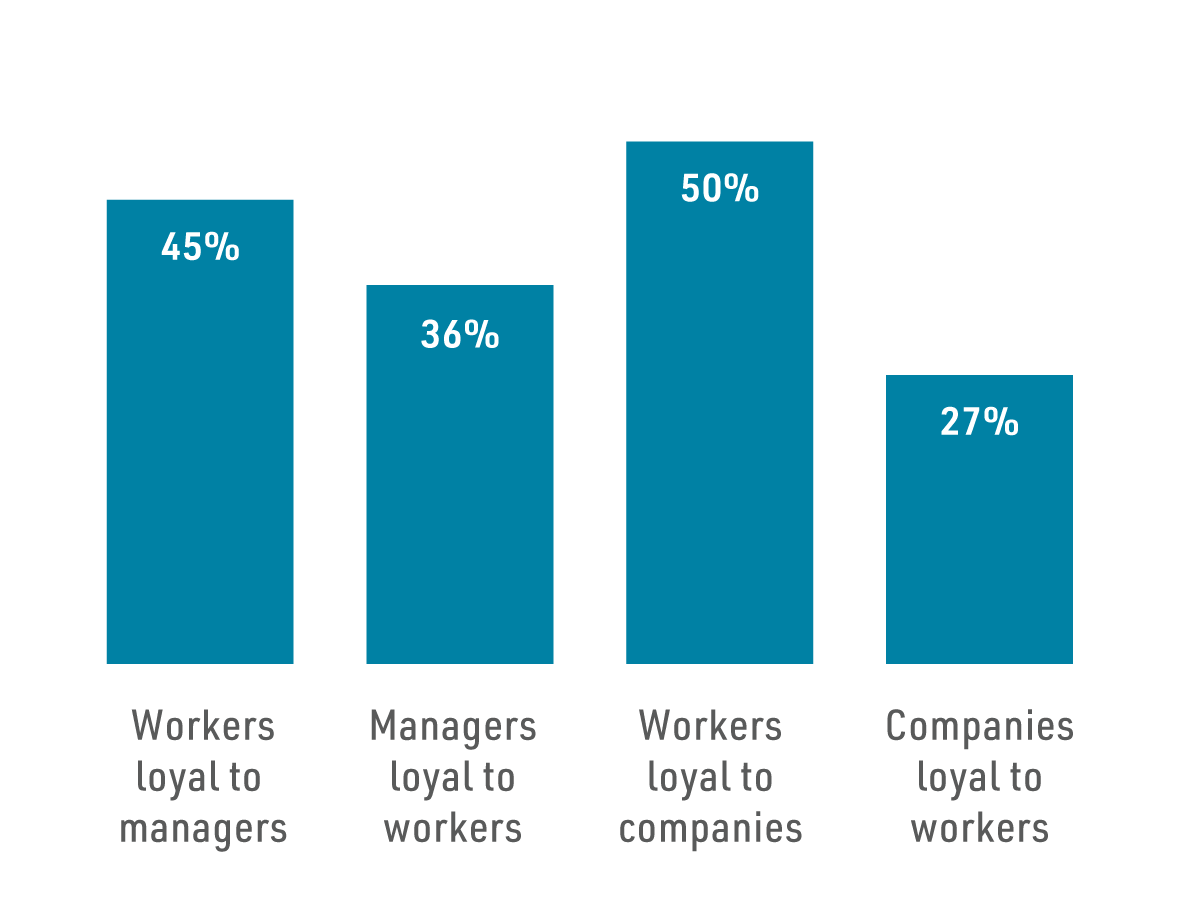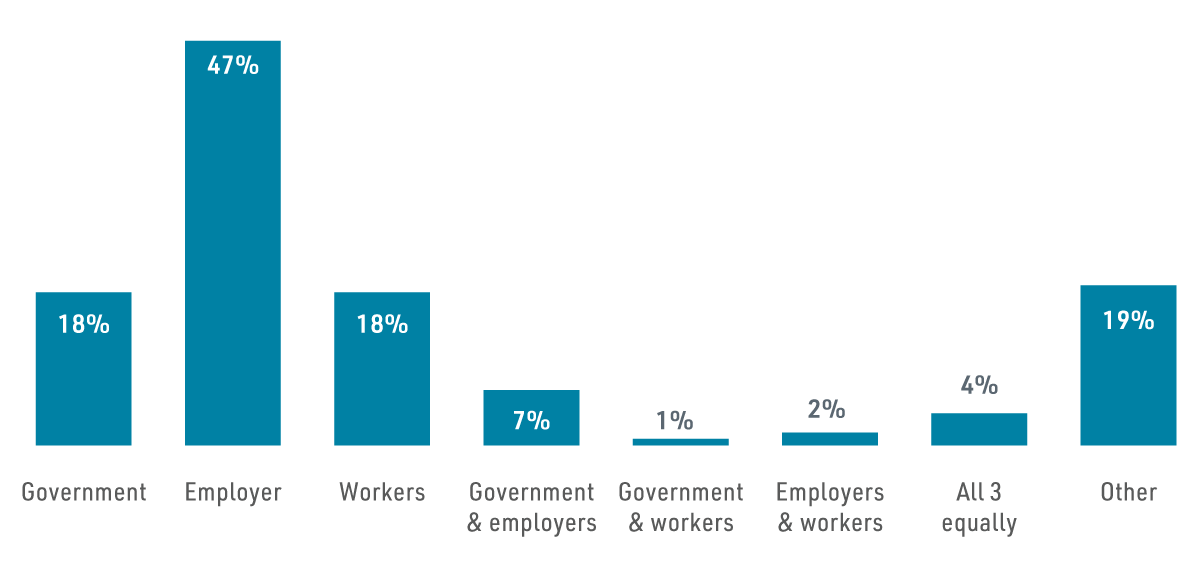Work Trends | Chapter 1
Americans’ Attitudes About Work, Employers, and Government
The first Work Trends survey was conducted in August 1998 and explored Americans’ perceptions regarding job satisfaction, job security, career mobility, education and training, and the appropriate role of government in addressing the needs of workers, employers, and job seekers. It was co-directed by Carl Van Horn of the Heldrich Center and Ken Dautrich of the Center for Survey Research and Analysis at the University of Connecticut. This survey was the first among dozens of studies giving a voice to American workers in national policy debates about the economy, the labor market, and education.
About the Study
A telephone survey conducted August 5 to 16, 1998 of 1,001 U.S. full- or part-time employed adults and unemployed adults looking for work.
Selected Findings
In 1998, Americans were satisfied with the places they worked and the people with whom they worked.
- American workers had high levels of satisfaction with their relationships with co-workers and supervisors, and with their commute to work.
- American workers were least satisfied with their total annual income, the age at which they expect to retire, their retirement and pension plans, and opportunities for advancement at their jobs.
However, American workers expressed skepticism about their employer’s loyalty to them.
- Only 36% of American workers strongly agreed that their managers or supervisors felt a sense of loyalty to them, while 45% of American workers strongly agreed that they were loyal to their immediate managers or supervisors.
- Only 27% of American workers strongly agreed that the company or organization for which they worked felt a sense of loyalty toward them, while half (50%) of American workers strongly agreed that they felt a sense of loyalty toward the company or organization for which they worked.
American workers believed they were well prepared for jobs but valued continuing education and training.
- Four fifths of American workers (78%) thought that they received enough education and training to prepare them for the type of job they wanted.
- Over half (56%) of those who had not received enough education and training for the type of job they desired planned to enroll in additional education and training courses over the following three years.
- Virtually all American workers (99%) believed they had the skills necessary to remain in their current job, while substantial numbers believed that they had the skills necessary to get a better job (77%) or get a promotion with their current employer (75%).
- Most workers (65%) receiving employer-provided training thought that the training enhanced their job security, but only 46% of those workers indicated it helped them earn more money.
Americans believed that the government should provide both financial support and direct services to individuals seeking jobs as well as regulate companies to protect workers’ economic interests.
While Americans thought that the government should help improve and fund further education and training (75% said it was very or extremely important for the government to provide financial assistance for skills training, basic education, and college), nearly a majority (45%) believed that the responsibility for obtaining further education and training beyond formal schooling should rest with the workers themselves.
Additional Topics Covered
Profile of American workers
Barriers to employment for unemployed workers
Unemployment Insurance
President Bill Clinton’s handling of the job situation
Concern about job security and jobs



